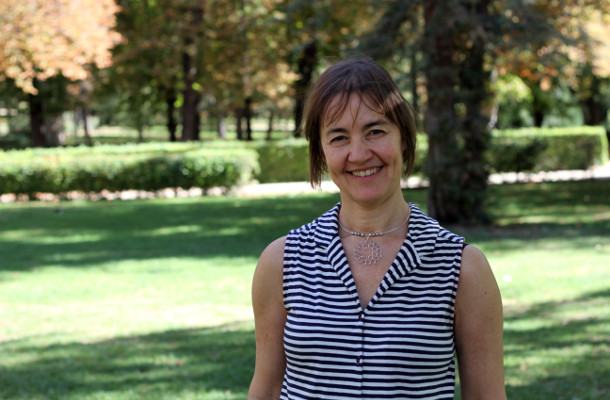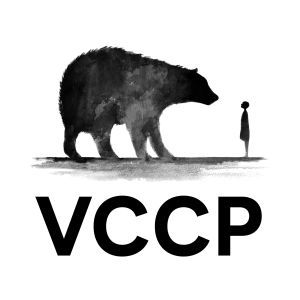
5 Minutes with… Nuria Serrano

When Nuria Serrano took on the task of setting up VCCP’s Spain agency as one of its founding partners, the country was in a deep economic rut. Despite being part of a global agency network, there was no guarantee that it would take hold. But Nuria and her co-founders navigated through the storm admirably, building the agency into a force to be reckoned with.
Looking at her background it’s easy to see how her brain would be an asset to any agency. Originally a psychology student, she’s nurtured an interest in the science of the mind all her life and is keen to apply it to one of her other passions - strategic planning. And as chair of the Account Planning Group for Spain she’s fighting hard for her discipline.
LBB’s Alex Reeves caught up with her to see things from her unique perspective.
LBB> Where did you grow up and what kind of kid were you? Were there any clues back then about what you would end up doing for a job?
NS> I grew up in Barcelona, but it was not yet the famous touristic city it has become. The most exciting thing that happened to me as a child is that I had the opportunity to attend the American School (my father was a Spanish teacher there), which has clearly made me the open-minded person that I am today. Growing up bilingual and being able to mix with all sorts of people and cultures is a big part of who I am today. At that time I did not really think about advertising, but I knew for sure I would work for ‘big, important global companies’ that would either let me travel around the world or achieve ‘marvelous, fantastic things’.
LBB> What do you remember about your early thoughts on advertising? Were you interested from an early age?
NS> Not at all. In fact, when I was a kid I was not allowed to watch much TV. What I was really interested in was people. I went to university to study psychology but was about to drop out after three years after a very tough psychopathology course. I was so terribly troubled by it all that even now I can’t watch movies about insane criminals since I know it’s all too true…
Fortunately, the father of one of my best friends worked in advertising and told me about consumer research and about planning. At that moment I knew that was what I wanted to do and would do whatever it took to get there.
I stayed in psychology but chose social psychology as a specialisation, instead of clinical psychology. When I finished I started looking for a job at research agencies - it just seemed the way to go. I was lucky because at BBDO they were shifting their research department to a planning department and they hired me and two other planners for the job. My advertising and planning school was really those first years at BBDO Barcelona.
LBB> You have a PhD in communications. That's not common in the ad industry! Can you explain why you wanted to do that?
NS> I always wanted to get a PhD, I guess I’m a bit nerdy in that sense. Originally it made sense to do it in the field of psychology, but most universities are too biased towards their school of thought (behaviourists, psychoanalysts…) and I wanted something more flexible.
One day, I was having coffee with some friends who had recently started a PhD and they insisted I should also do it with them. It was kind of a joke but I thought, “why not?” I thought it was crazy but it seemed to be a good hobby at that time. I was not sure if I would even finish it… but some years later I had achieved it!
LBB> What was your doctorate about? And how has it helped you in your job as a strategist?
NS> It’s about advertising and memory, it offers a new point of view thanks to the recent findings from cognitive neuroscience. It allowed me to merge what I knew from my psychology background, my experience as a strategic planner, and all the new, exciting scientific neuroscience breakthroughs.
To talk about memory in advertising might seem obvious, but there is really nothing obvious about memory. Think about it, even our own memory seems to be tricky most of the time. The new neuroscience findings give us a new definition of memory and how it works. First, there is not one memory but a group of memory systems that work in a dynamic, flexible, subjective and personal way so we can learn, reinterpret, forget and survive, with the unconscious/implicit memory as a leading role. Neuroscientists such as Damasio, Kandel or Schacter show us the tip of the iceberg, but it already offers a new view to understand better how consumers think and live (and also how the creative brain works).
LBB> Speaking of neuroscience, what lesson from that field do you think marketers and brands could use more effectively?
NS> Even reading an introductory book about neuroscience and marketing, such as ‘How we Decide’ from Lehrer, will offer us a surprising new perspective on how consumers think and will make us rethink the way we advertise. The most obvious lessons have to do with the way we view consumer research. By this I don’t mean we should trash everything we know about research, but we really should review it as an industry and decide if it’s time to revise methodologies and tests that were created in the ‘60s, especially considering the world is such a different place right now. I like the way companies such as Walnut in the UK revisit research, complementing what works from older methodologies with what works from newer methodologies (yes, it’s true, not all that is new works well and, unfortunately, there is also some fraud and opportunism that needs to be controlled).
LBB> You were one of the three leaders that started VCCP in Spain in 2012. What was that experience like?
NS> It was a fantastic adventure. You have to remember 2012 was one of the worst years for advertising in Spain, since we were in the middle of the economic crisis. It was brave and visionary of VCCP to trust the market and us. True to their principles, their support was flawless and, together with us working extremely hard, we started to produce great work for our first clients. In fact it felt very much like a start-up with intermittent joys and pains almost on a daily basis. Everything we did felt like “life or death” those first months. Of course, the best part of the adventure is that we became one of the most successful agencies in the market in just five years, with clients, work and awards that talk about who we are better than we can ourselves.
LBB> How has the agency developed since then? What are the biggest changes?
NS> We have grown to more than 50 people, moved into fantastic new offices near the Retiro park in Madrid, work for some of the market’s biggest players, and have an awarded showcase reel. But to me the most important part is what has not changed: it's still all about the people, our clients keep recommending us to other clients, management is highly involved in the projects, creativity and strategy are totally connected.
LBB> Which recent projects are you most proud of and why?
NS> I’m particularly fond of the work we have been doing for Liberty Insurance, one of our earliest clients with whom we have grown together, working side-by-side building their brands in a really integrated way. Our latest project is ‘Miradas’ where we confront people with a terrible insight: often Paralympic athletes and in general people with disabilities are stared at in the streets. We offer a twist on this situation by inviting everyone to look at them but where they really excel - at the Paralympics competition. “Keep your eyes on us” is exactly what we ask society to do. And, as a follow-up, we have initiated a petition for UNICODE to include Paralympic sports emojis. I hope you will support our #paraemojis!
Another great example of our work is the campaign we developed for the Santander-Ferrari sponsorship. The ‘We Never Drive Alone’ strategy was very powerful and allowed the brand to connect emotionally with consumers beyond those with an interest purely in racing, by focusing on the bank's key values. One of our best activations was Formula Rock Contest, where we connected with a younger audience who might otherwise not be too interested by the races but who are interested in music and challenges.
LBB> Can you talk about your role as the APG Spain Board chair? What are your priorities with that and why are you passionate about it?
NS> I’ve been the APG chair for the last two years and it has been an awesome experience. I never thought it would be so enriching. It has also been lots of hard work, but we’ve achieved a lot. My priorities were twofold: to actively involve the planners into ‘doing’ things, not just ‘thinking and planning’ - which we usually prefer - and to defend planning as a discipline instead of the planners as individuals. In two years we’ve done lots of things and talked about planning at many key events and for key targets, so I’m extremely happy with the results. Additionally we tripled our members! You can check some of the interesting things we keep doing at http://www.apgspain.es/ #planningpower!
LBB> Which aspects of the strategic process are most enjoyable for you?
NS> The beginning of it all. It’s like buying a new dress and deciding the first day to wear it, how to wear it, what to wear it with. For me the ‘smell of new’ in strategy means the feeling I get when first listening to a client’s problem, when first looking at the data or research, always knowing it is important to learn more, explore beyond and then rethink it all in new, different ways. The problem is that lately we don’t get as much time for these initial phases of getting to know as much as possible. It’s a pity.
LBB> What do you like to do in your spare time? Any current obsessions?
NS> I travel. I’m an obsessive, compulsive traveller. If not travelling I’m reading, organising or just thinking about my next travels. Any additional spare time I dedicate to reading. My current obsession (which is one that I return to from time to time) is biographies. Just finished Elon Musk’s and Arianna Huffington’s. People are usually surprised that I almost never recommend planning or advertising books, but I sincerely think we need to explore new worlds to get better ideas. Old worlds also work since my personal, long-time favourite is Dickens, but my latest discovery is the ‘almost poetry’ book by blogger and Instagrammer @alejandraremon.













